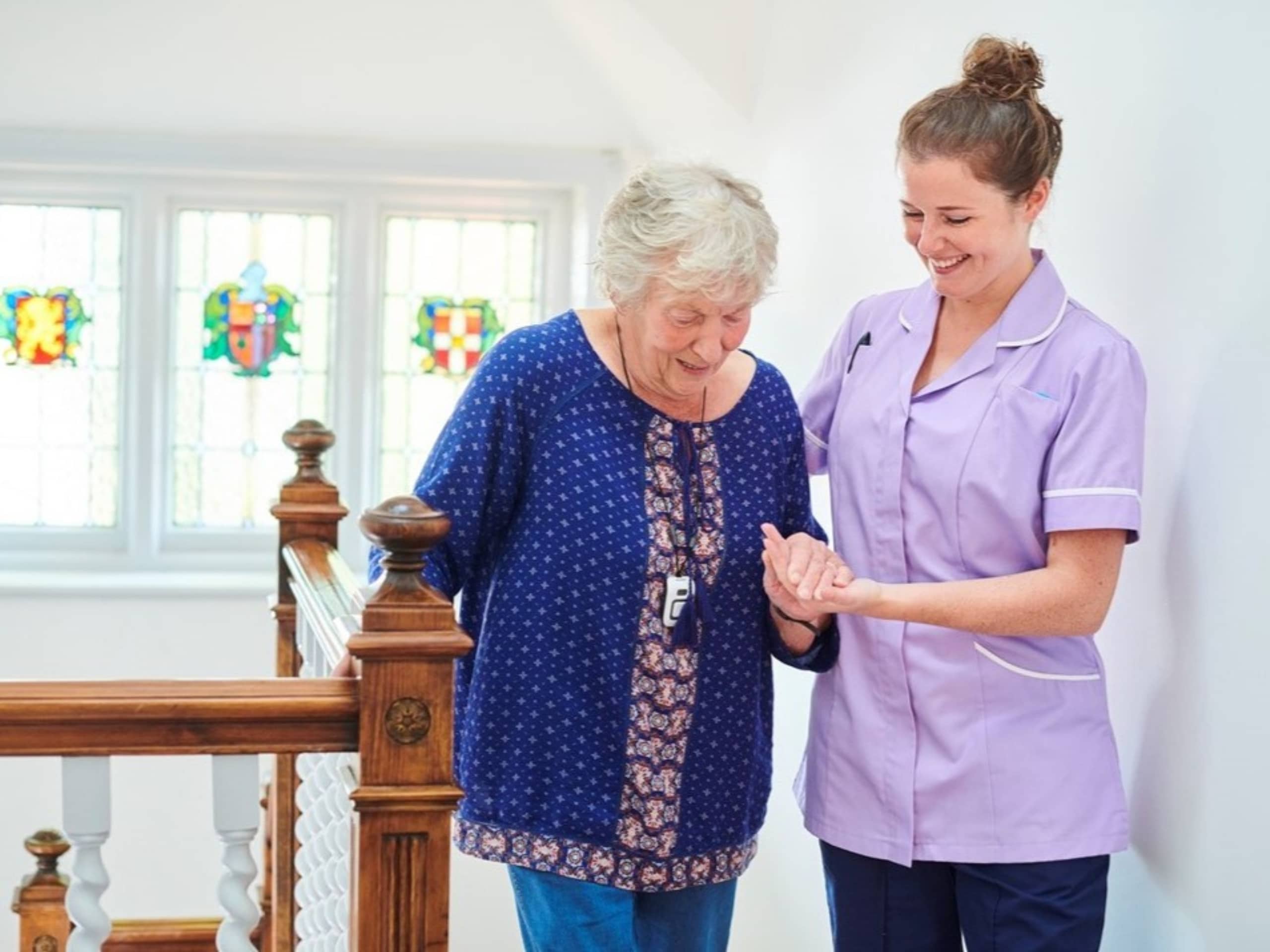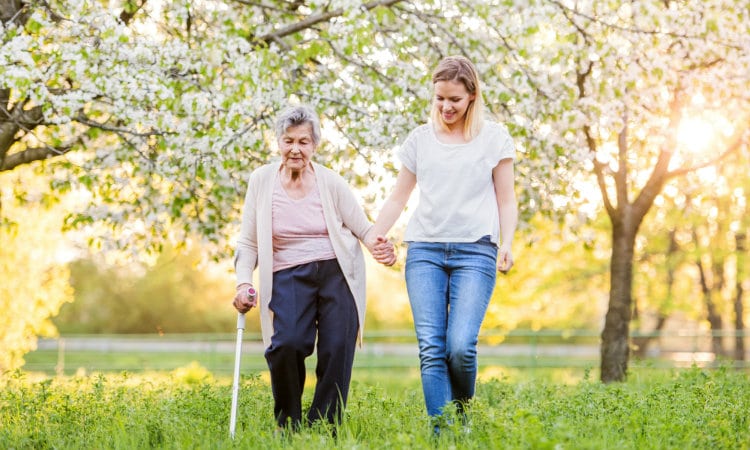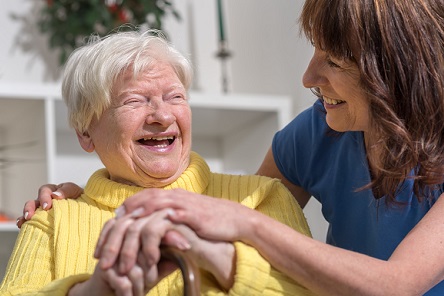Continence care for your loved ones

What is continence care for the elderly?
Continence care is when carers offer support to individuals with bladder or bowel issues.
If you find that your loved one accidentally loses urine from the bladder or faeces from the bowel, you should contact the GP. They will assess their symptoms and provide a treatment plan to help treat their needs.
We understand that many people can be reluctant to talk about continence care, but it is essential for your loved one to speak up as “in most cases, the problem can be cured or managed so it doesn’t interfere with your everyday life” (Age UK). So, with the proper support and treatment plan, it is still possible to live an independent life.
If your loved one needs assistance with continence care, Helping Hands offers respite, visiting and live-in care options so they can remain independent at home whilst receiving the help they need.

Supporting your continence health
Seeing a loved one struggling with continence problems is never easy.
We understand seeing a loved one experiencing health issues can be upsetting, especially when a parent or grandparent has always been independent and never had to rely on anyone.
However, there are plenty of ways to support your loved one’s continence health. Simple lifestyle changes, such as preparing nutritious meals and exercise, can help manage continence needs. By making these changes, you will see a difference.

Exercise
Pelvic floor exercises are beneficial to improve bladder control and strengthen muscles. No matter your age, everyone can benefit from doing pelvic floor exercises. You may need to remind your loved one to do these exercises. After all, we all tend to become forgetful at times.
Drinking and eating habits
Decrease alcohol and caffeine drinks such as tea and coffee. The NHS states these “can cause your kidneys to produce more urine and irritate the bladder.” Plus, eating the right foods can help with continence heath. So, avoid spicy and acidic foods as these can irritate the bladder.
Avoid lifting
Try and make sure your loved one avoids lifting as much as possible, as this can put pressure on their pelvic floor muscles.
Emotional well-being
Support your loved one throughout the process; it’s not easy on them. Consistently reassure them and encourage your loved one to do what they enjoy.
Expert continence care and training
If you need additional support to look after your loved one’s continence needs, at-home support is available from Helping Hands.
Care at home allows carers to provide continence care without your loved one having to leave the comfort of their home. This is particularly helpful for those who find it difficult to venture outdoors or prefer to stay at home.
Personal care
Our carers can help with changing incontinence pads and ensuring your loved one’s hygiene is kept intact
Nutrition
We can prepare fibre-rich meals and monitor your loved one’s water intake, which can lower the risk of constipation
Emotional support
We take care of your loved one’s emotional well-being by providing sensitive and discreet continence care
Person-centred care
With care at home, your loved one will receive one-to-one care, focusing on their needs and requirements
Nurse-led support
With extensive experience within the NHS, our clinical team support our carers in managing continence issues
Remain at home
Your loved one will be able to stay in a place they know and love; close to loved ones, beloved pets and special memories
Expert continence care and training
Since 1989, Helping Hands has provided exceptional continence care so our customers can continue living the life they want, with a little help along the way.
Our nurses, with a wealth of clinical experience within the NHS and other sectors, work with our carers to ensure we support our customers with continence needs in the right way. This includes bladder retraining, catheter support and help with exercises to strengthen pelvic floor muscles.
All our carers are trained and equipped with the essential skills to help manage your loved one’s needs, allowing them to live independently at home.


We will manage your loved one’s care, so you don't have to worry about a thing.
A member of our care team will visit your loved one and assess their needs and requirements. Our carers will work with our clinical care team and other healthcare professionals to support continence issues, including catheter, stoma and bowel care.
We will also help with medication and personal care, including keeping your loved one’s skin clean and changing incontinence pads and bed protectors.
All our care packages are fully bespoke and flexible to your loved one’s needs. We provide continence care on a visiting or live-in basis and you can find out more below.
Visiting care allows your loved one to receive care during the the week at times that suit them. So they can continue living an independent and comfortable life at home.
Care from 30 minutes a week
Person-centred care
High-quality care
Live-in care is when one of our compassionate carers lives with your loved one at home and provides round-the-clock support.
24 hour support
Maintain your routine
No restrictions
Our carers provide exceptional care so that our customers can continue to live the life they wish, with a little help along the way. So whether your loved one needs a hand with ironing, exploring the community or could benefit from a bit of companionship, we will promise to be there every step of the way. We can support your loved one with:
Companionship
Household duties
Hobbies
Personal care
Looking after pets
Running errands
Mobility
Medication assistance
Grocery shopping
Routine
And so much more!
-
What are the continence needs for seniors?
-
Continence care needs can vary, as no one size fits all. This is why at Helping Hands, all our care packages are fully tailored and bespoke to your loved one’s requirements. Continence needs may require changing incontinence pads, support with using a catheter and ensuring your loved one is taking their medication on time. Or they may just need someone to talk to about what they are going through.
-
How do I get care for continence needs?
-
You can arrange continence care by contacting our customer care advisors, who are available seven days a week. They will arrange a free home care assessment and a member of our team will visit your loved one’s home. From here, we will design a personalised care package for your loved one.
-
What is included with home continence care?
-
With home continence care, you’ll receive support in the comfort of your home. Our carers can help with personal hygiene and medication, respecting your dignity at all times. They will also motivate you to eat nutritious meals, keep hydrated and exercise to help manage your continence needs.
Page reviewed by Kathryn Mahon, Regional Clinical Lead, on June 19, 2023.